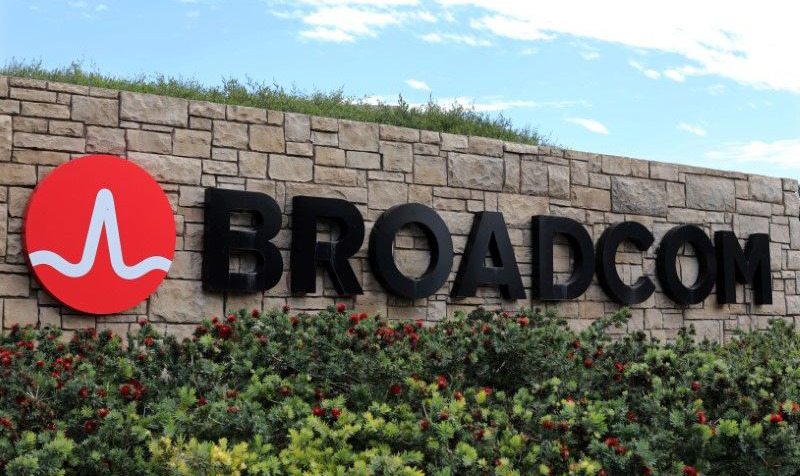After President Donald Trump issued an executive order blocking Broadcom's proposed takeover of U.S. chipmaker Qualcomm, the Singapore-based company will formally announce an end to acquisition efforts, a report said Tuesday.
Citing sources familiar with the matter, Bloomberg reports Broadcom is preparing to issue a statement Wednesday morning formally announcing its intent to end a hostile pursuit of industry rival Qualcomm.
The expected announcement comes one day after Trump blocked Broadcom's bid on the basis of national security concerns. U.S. government agencies, namely the Committee on Foreign Investment in the United States (CFIUS), expressed concern over the proposed purchase, saying a takeover could weaken Qualcomm's position in the global semiconductor industry.
In a statement on the matter, the White House on Monday said there is credible evidence that Broadcom, through a newly minted Qualcomm acquisition, "might take action that threatens to impair the national security of the United States."
Trump's directive blocks Broadcom from acquiring, taking over or merging with Qualcomm, and orders both companies to cease any efforts toward those goals.
Broadcom first made a play for Qualcomm's business in November when it offered $130 billion for the company. Qualcomm refused the proposal and two others like it over the ensuing months.
In a letter dated March 4, CFIUS said it was investigating the takeover and ordered Qualcomm to postpone a shareholders meeting that was scheduled to vote on Broadcom nominees to the chipmaker's board. Broadcom was looking to install six directors to Qualcomm's 11-member board in a bid to push its agenda forward.
In an attempt to skirt CFIUS jurisdiction, Broadcom moved to redomicile to the U.S., effectively making the firm an American company. CFIUS in a letter told the firm to provide five business days' notice before taking any such action, but Broadcom last week said it planned to hold its own shareholder meeting seeking approval to start the redomiciliation process.
Just prior to Trump's order, Broadcom said it would redomicile by April 3. Whether the firm will move forward with plans to relocate are unknown.
 Mikey Campbell
Mikey Campbell







-m.jpg)






 Malcolm Owen
Malcolm Owen

 Amber Neely
Amber Neely
 Christine McKee
Christine McKee


 William Gallagher
William Gallagher
 Chip Loder
Chip Loder


-m.jpg)






9 Comments
Qualcomm is essentially worth a lot less than before now ,"bravo". In 5 years when it is near death, they'll be happy for this victory.
As Apple continues moving away from QC and begins developing its own competing chips, how is this block going to help? Wouldn’t having a major company US-based also help taxes? And as far as ‘concerns’ go, why is TUSAGovt trying to open up iOS at the same time? This inconsistency needs to be resolved.
Ah well..
the world could’ve finally had a single efficient chip for all things wireless; from Wifi, Bluetooth to Cellular, in a single fabrication process.
As corrupt as Qualcomm, it does own some treasures of patents. This could’ve been a merge of scattered technologies to evolution.
Even in terms of just business, Asian companies would eventually shut many American companies.
I suppose Broadcom, now that they’ve dropped their bid, could continue with their plan to redomicile. Then once that’s accomplished simply make another bid for QCOM. Would CFIUS be in a position then to even look into the matter?
Good question, Radarthekat. I get that this situation has multiple angles to it that resist easy/simple solutions, but the one thing I was hopeful for was that Broadcom could have put an end to Qualcomm's illegal business model much more quickly than the courts will (but the courts will, eventually, do that -- and the US faces the possibility of losing Qualcomm outright when that happens). I expect that if Intel continues to pursue Qualcomm, they might end up with it and hopefully abandon that business model as Broadcom would have. From what I understand of this matter, that might be the best resolution anyway.